Podcast transcript: The future of personalised healthcare
Read the full transcript for this episode of the IT Pro Podcast
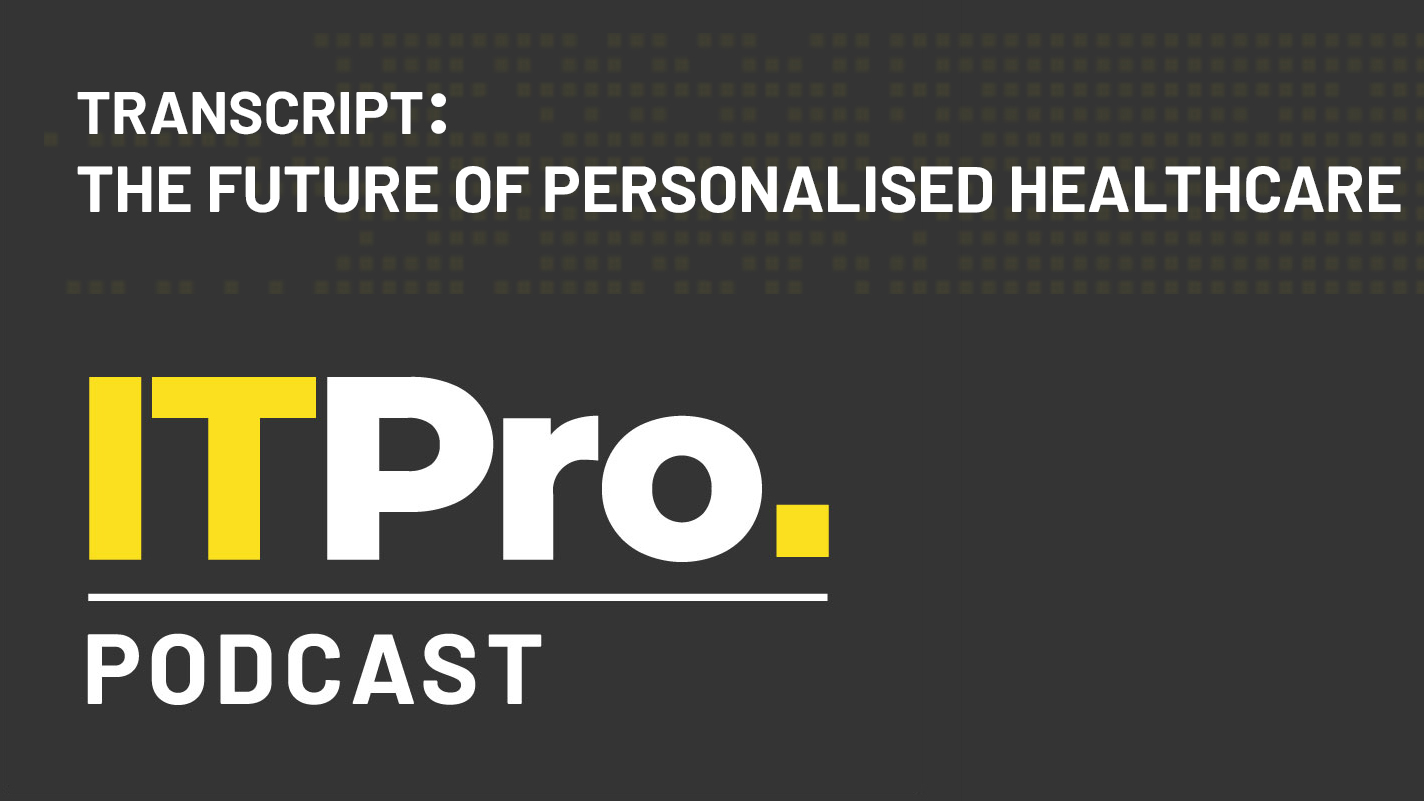
This automatically-generated transcript is taken from the IT Pro Podcast episode ‘The future of personalised healthcare’. To listen to the full episode, click here.
Adam Shepherd
Hi, I'm Adam Shepherd, and you're listening to the IT Pro Podcast, where today we're talking about healthcare transformation. Efficient medical care has never been more important than it is right now. And healthcare organisations across the globe have been striving to make themselves more agile and more flexible in an effort to better support their patients and staff. For Bupa, a key element of these efforts is an ongoing drive to leverage data driven insights in cloud platforms, building an infrastructure that can deliver personalised care to patients. Joining us today to discuss the technology that is enabling this is Bupa CTO, Diana Kennedy. Diana, thanks for coming on the show.
Diana Kennedy
Thank you, Adam. It's great to be here.
Adam
So for those who may not be familiar, can you give us a brief overview of what Bupa's IT estate looks like?
Diana
Oh, for sure. Yeah. So I suppose Bupa is, you're probably not necessarily aware, we're a very large global company. So operating across 17 countries with possibly 50 plus businesses. And an IT estate to match. So we've grown through acquisition. And many of those geographies operate in a certain level of loose coupling from the, from the mothership, if you will. So you name a technology and we have it, I'd say, but predominantly, from a platform point of view, we have a dual cloud strategy. So primary with Microsoft Azure, secondary with Google Cloud Platform, specifically for advanced analytics and data. We're a Microsoft collaboration shop too, so we use Microsoft Teams, Power BI, et cetera. And then we have a large landscape of many thousands of applications supporting our healthcare ecosystem, in geographies where the combination of insurance and provision is different. So you're probably familiar in the UK of Bupa as predominantly an insurance company. And that's, that's, that's true in the UK. In other geographies, it's quite different. So for in Spain, for example, it's a very integrated insurance through to provision we have a large number of hospitals and clinics in Spain. Similarly, in Australia, we have the health insurance part of the business but also have a large number of opticians and dental provision and aged care as well. So yeah, very interesting and diverse healthcare portfolio across the globe.
Adam
I'd imagine that's a challenge at times to manage, particularly with the spread of very specialised kind of technology platforms and applications that need to be integrated as part of that.
Diana
Yes, absolutely. But I think what's super interesting about this sector now, is increasingly cloud technologies are democratising that and enabling the standardisation. And the evolution of platform ecosystems that for the first time are enabling global healthcare provision is, is what makes this interesting. So absolutely, we have a legacy to die for really, from mainframes in Australia through to architectures running on Oracle 10 in, in the UK and others, and everything else in between. But you know, the combination of cloud, microservice architectures, API integration, you know, is really unlocking the value of all these things in a way that you just simply wasn't possible before. And then we're a big ServiceNow user. So service management and IT for IT comes through a ServiceNow backbone that enables us to align on CMDB and our IT assets globally. So we're getting better at it, I'd say.
Get the ITPro daily newsletter
Sign up today and you will receive a free copy of our Future Focus 2025 report - the leading guidance on AI, cybersecurity and other IT challenges as per 700+ senior executives
Adam
So, speaking of which, talk us through your platform-based approach to digital healthcare.
Diana
I joined Bupa back in January, having spent a number of years at BP in leading on digital transformation there. I joined this sector to bring a lot of that learning and knowledge and experience from the energy sector, but also because, because of the enormous vitality and relevance of digital and technology to this sector, in an industry which is in relative to others pretty late to digitise; certainly on the scale and of course, COVID-19 has without doubt accelerated that, hasn't it.
Adam
Yeah, and in terms of kind of times to join a healthcare business and kind of bring that digitisation and transformation to it, you know, you can't, you couldn't pick a better time than, you know, the start of this year with everything going on and the massive need for that kind of transformation. But what what's interesting is kind of you mentioned bringing some of your learnings from the energy sector to healthcare. And I think that's, that's a pairing that most people wouldn't necessarily think of. So what to you stands out as the main kind of, the main learnings and synergies that you can transfer from one to the other?
Diana
So a really great question, and probably more, more commonality than you might imagine. So healthcare, certainly in Bupa, is relatively late to the cloud. The oil and gas sector, and certainly the super majors, you know, are five, six years into their public cloud journey, if not longer. And you know, the value of hyperscale cloud, for cost efficiency, agility, pace, and modern application architectures that enable time to market and great customer experiences are so much more possible in the cloud than anywhere else. So a real focus on accelerating our journey to the cloud, using our transformation, but also the pivot of datacenter exit, datacenter lease terms, etc, as the as the sort of terminator to, to drive the urgency around that. So cloud is very definitely one. And I brought the experience of my large scale cloud migrations, but also application transformations to cloud native services. And that's a big part of our story here at Bupa now too, is that journey to the cloud and the value generation from the cloud. The second - and I describe these things as the digital foundations, if you will, of a large scale transformation, the scale of which we're in - the second is integration, and taking an API first approach to application integration and application architecture. And that's something too that is relatively nascent and new in, certainly in Bupa, but across the sector. There has of course been a lot of work done on data interoperability with the fire standards, etc. but bringing that to life into real tangible solutions and outcomes for our customers is the hard thing and, and API marketplaces, API brokers is a part of that ecosystem. And then thirdly, design systems. So you know, huge focus in, in healthcare and in Bupa right now is that seamless experience for our customers when you consume digital services. And as we increasingly seek digital options for our own healthcare, be that in the wellness space, or be that in the prevention space, or be that in the acute care through, increasingly, diabetes support and other conditions. And you know, real investment in human experience design, capability, mindset methodology, and the design system to support that. So I'd call those three things out, really, as the, as the big foundations of what we're doing here at Bupa. But those that I've really sort of brought from the adjacent energy industry.
Adam
So you mentioned cloud as a kind of key driver of what you're trying to do with this kind of platform based strategy. What was it in particular that attracted you to Microsoft's cloud ecosystem? Because you're heavily invested in kind of Microsoft, in particular, kind of across the across the stack. Was there anything that especially drew you to Microsoft?
Diana
A really great question. I, I would say that I joined in January and into an existing cloud relationship with Microsoft. At BP, we were a dual cloud shop with Microsoft and AWS. I've personally had a very strong relationship with Microsoft, and Amazon, and now, now Google and I think, you know, at a base level, it's great to have competition. The features and functionalities are broadly similar, but with with emerging capabilities, so I can't say that I chose Microsoft because of the functions and features but now, now, we're investing more significantly with them in the Azure space, the benefit of integration, the benefit of the platform services that come with Azure, and then specifically, the investments in ML studio, advanced analytics, seamlessly from your production and operational systems into your data platforms is, is great. It's a, it's very definitely a valuable feature from, from Azure. But having said that I think having a hybrid mix is right for most organisations, having a bit of commercial tension, of course, but also being able to deploy workloads to the, to the, to the place of best fit and the place of where there are more, perhaps more advanced features at that time as the hyperscalers leapfrog each other from one place to the other. I'm a big fan of Microsoft.
Adam
Yeah, most of the healthcare organisations - certainly that we've spoken to - tend to favour Microsoft in terms of their cloud deployments, which is largely a factor of the the existing relationships that these organisations have with with Microsoft, you know, they're already running Exchange servers, and Active Directory and Windows throughout all of their kind of, you know, client devices and like end user devices and whatnot. So it's a kind of fairly natural extension to broaden that relationship out into a, into a cloud environment, when you're you're looking at those kinds of projects. But in terms of kind of the healthcare industry, specifically, that's something that Microsoft has made some, you know, concerted efforts to try and actively support in terms of its cloud portfolio. Have you found that those initiatives have been particularly helpful?
Diana
Yeah, and I think all the hyperscalers have, haven't they? They all have their sort of health, health cloud equivalent. Absolutely. I mean, we, you know, we're investing heavily in Azure, and GCP. But in in Azure to take advantage of those features, in order to take advantage of industry standard data models, pre built templates, and automation. And the acceleration that gives us that that is aligned with our interoperability ambitions, through the fire standards, etc. So yeah, I mean, fantastic investment from those companies. So that at the sort of core platform level. And then we're, we're working with Microsoft at the the other end in the innovation space, with their startup community and others looking at really fantastic cutting edge solutions in the IoT domain to support aged care provision, for example, using motion detection to detect falls, for example, checking hydration, and some really, you know, fantastically impactful solutions through the out of the box capability that you get with edge compute. And then, and then you know, looking to invest in the data space, in running analysis and developing models in the genomics and proteomics space to drive much better view around predictive outcomes, and evidence based analysis of where we're using digital medical devices. And, and testing the value of those, the efficacy of those against more traditional solutions so that we can deliver the best outcome to our customers or patients. So yeah, some super interesting stuff, and the billions of dollars of investment that hyperscale cloud providers are putting in is, is massively beneficial to the planet, as well as us as individuals.
Adam
So talk us through some of these data led initiatives that you mentioned, what kind of benefits from a kind of patient perspective, if you like, from an outcomes perspective, are you expecting to see from these projects?
Diana
Yeah, so when we think about our digital transformation, we think of it across three fronts, we think of it in terms of optimising and improving process, in order to improve the customer experience, removing manual repeatable tasks, removing paper from the process, creating an integrated pathway whether you engage with Bupa as a, from a wellness point of view or in aged care or somewhere in between. And really going after digitising and automating those core processes. Then the use of advanced analytics and AI, and these are the pieces I talked about just now where we're using our scaled datasets to drive a predictive model, predictive models on the use of both our existing care provision and new. And really, in doing that, driving much more personalised care. And I think that's where the real transformation in in healthcare is happening is, is from standardised clinic, hospital based care through to personalised care. And using historical datasets, breadth of datasets across a number of interventions to to understand outcomes, how to improve those outcomes and how to personalise them. So lots in that space, which is super interesting. And then finally, the platform business models, so creating digital services for our customers. So in Spain, we've launched a really rich telemedicine offering which offers video consultation with the consultant, offers primary care with a GP via video consultation, offers wellness services, offers vital signs diagnostic using fantastic AI service, all available via mobile phone in a really slick and seamless interface. So these are the sorts of things that we're going after. But all all in service of becoming the, in our new chief executives words, the most customer centric healthcare company in the world. So really focused on those hyper personalised outcomes, evidence-led, great, great experience, be that digitally or in person, underpinned by super rich data science and data analytics.
Adam
So looking at personalised healthcare, this is something that we've heard more organisations talking about over the last couple of years, but I feel like it's still a bit of an alien concept to most people, particularly in the UK where the NHS is, let's say not exactly on the cutting edge of personalised health care and those kinds of developments. What does personalised healthcare mean to you? What does it look like from Bupa's perspective?
Diana
Yes, so, fantastic question. So when we think about personalised health care, we think about to my point earlier moving from standardised procedures, interventions, outcomes as a result of a standard manifestation of a condition to capturing and aggregating data from an individual to predict outcomes and prevent them through interventions. And then to personalise the ongoing care. And that shows up in two main ways. Firstly, this pivot almost, if you think of it as a data model shift from clinic, hospital, and all your your data assets aggregated around this physical asset of the hospital, to the data model being focused on the individual. And, and all of the care provision around that. And that shows up to us in the use of genomics, proteomics, so using genomic sequencing to identify propensity for conditions and intervening ahead of time. And I think that, to me, is one of the biggest shifts in the sector that is now possible that will allow us to really tackle this enormous explosion in health, health care provision and requirement for for care as we, as the population grows and as people live longer. And then secondly, proteomics. So using protein sequencing to predict outcomes as a result of human behaviours. So where you can actually take a personal intervention to improve your outcome be that your sugar intake, be that your diet, be that your exercise regime, and be able to predict forward outcomes and prevent them from happening. Those are the two big super exciting opportunities to drive that really hyper personalised care. And then, as an insurance company using more personalised algorithms and using analytics to develop behavioural economics, I think it's often called, where we can drive the cost of outcomes based on behaviour, and make you make make that available to individuals. So those are those are two main ways.
Adam
Yeah, that's a really interesting area, this idea of kind of almost predictive medicine. It relies by the sounds of it quite intensely on data and gathering data and making sure that data can flow efficiently from one system to the other, you know, healthcare systems, one of the main complaints that we've heard about legacy healthcare systems in particular is that they tend to be very siloed and very cut off from each other. How are you optimising your infrastructure to support the use of data in these kinds of new ways across the business?
Diana
Yes, I can't deny that that's a challenge. Of course it is. And we've developed a global data reference architecture, which has within it standards for tools, platforms, and reference architectures around models. So a common information model, a common approach to security and privacy, a common approach to data management. But that doesn't mean that we're building a single integrated global data platform across all of our geographies - we're not - but we are standardising on the local implementation of those and that makes life an awful lot easier. It means that we can share models, we can share expertise across different geographies. And we can run champion challenger tests across different platforms, and various other things. It isn't, you know, the cloud, of course, absolutely enables that and early investment in the cloud is a is a massive benefit. And back to my point earlier, the API led approach to developing services to be able to access those monolithic systems is really reaping dividends for us to avoid for more traditional, you having to merge and funge datasets and all of that horrible matching, which is impossible to get right. Haven't we all done that and regretted it forever? Yeah, so I think, yeah, modern technologies, modern, modern application architectures and capabilities are really helping.
Adam
And I would imagine, taking that API led approach allows you to democratise access to that data across a wider range of teams and departments and whatnot, then if every kind of request if you like, every kind of project that needs data, lead insights, if it has to go through a central kind of data management team, that's always harder to manage, and kind of always more likely to introduce bottlenecks. We were talking to Richard Spiegal from Nationwide on a previous episode about this very problem. And they've turned to kind of a federated model, if you like, where they've got kind of smaller satellite data teams that are kind of spreading, spreading the gospel of data, if you like, throughout the business, and they found that very helpful for democratising the, not just the access to data, but also the engagement with it.
Diana
I love that idea. Actually, I might steal that from Nationwide. Yeah, definitely. Yeah. So I mean, it's about matching the capabilities to the problem, I think. And that's one of the the the approaches that we're taking, but also the benefit of a loosely coupled architecture and micro microservices, increasingly serverless architecture enables you to do which is just brilliant. You have to have the culture shift and mindset and operating model shift to enable that. Yeah, you're going through all of that too, of course. Yeah, definitely.
Adam
Of course. And it's often a challenge for I think healthcare organisations or I should say, the NHS in particular. It's often a challenge from what we hear, to adopt these newer technologies, particularly things like you know, containers or serverless architectures, you know, these kind of much more cutting edge methodologies that are maybe a bit more reliant on organisational flexibility, which public sector organisations, of course don't always have, but those that have adopted it universally sing their praises for just the sheer agility, that it that it gives them in terms of iterating on their, their models and their development processes and just delivering those outcomes and a faster way.
Diana
Yeah, absolutely. And I think if you've not seen that, you probably don't believe it, it's almost, if you've been in a world of legacy and more traditional architectures, I think you haven't understood the value that actually these things really, really are possible now. Which is one of the fantastic things about people like me, coming from different industries, and having lived this world for a number of years. Actually, you know, bringing that to life for people is amazing, because the outcomes are so much quicker, of course. And it's so much more fun to be part of.
Adam
Yeah, I can imagine. So speaking of adoption, do you think that COVID-19 has accelerated the development and adoption of digital healthcare tools and processes? I mean, we, we spoke earlier on in the episode about kind of the the need for transformation, particularly in light of the pandemic. But do you think it's kind of enabled a lot more of these kind of cultural shifts that you've mentioned?
Diana
Absolutely. 100%, yes. And in an extraordinary way, I think, beyond anything anyone would have ever imagined. In our Spanish business, we were able to deliver 70% of consultation appointments, consultant appointments, virtually during during 2020. Yeah. And that's, that's gone up to - I believe these numbers are correct - about 30% or more here in the UK, is something that, and now the default of, you know, GP consultations being virtual. And that was just something that was just not even conceived 18 months ago.
Adam
Absolutely unthinkable.
Diana
Yeah, yeah, exactly, for lots of reasons, for clinical reasons, for that personal engagement reason, and inertia and lack of technology. And that's the new normal. So I think our readiness to adopt and use digital services is grounded in what is now our new experiences in interacting with with practitioners, be that GP or physio, or whatever it might be. And, and I think that that explosion has been beyond anyone's wildest dreams, really, but is now enabling more. So I think, certainly in Bupa, as we start to think about our sort of digital services, we're thinking way beyond GP, we're thinking diagnostics, vital signs diagnostic and critical care from your own home. And, and the great thing, and I think one of the reasons why adoption has been so good is that it's super convenient. The aggro of having to jump in your car, get a bus or public transport to a hospital, and you hang around and wait forever and it is super inconvenient. Whereas if you can do that from the comfort of your own home, and now a lot of the investment in clinical devices to make those for personal use, or at least for use in your own home. Again, it's that convenience factor. So if you can, you can have your your renal care in your own home, if you can you do your diabetes diagnostics at home, if you can... There's so many so many things. Cancer care now, chemotherapy delivered to your home. It's a perfect combination of convenience and more seamless experience. So I think it's definitely here to stay without doubt, and expect to see more. And I love this, it plays back into this sort of personalised care thing. It allows clinicians to, to, to be able to think of you as an individual as opposed to someone else on their list to get through in the clinic today.
Adam
So I think one of the biggest challenges in healthcare is, or certainly prior to 18 months ago, was the fact that the inconvenience frankly of most kind of healthcare processes from a patient point of view, just put up huge kind of barriers to people so you know, the the rigmarole of getting an appointment at your GP you know, you have to call in a certain, often very small, window, the appointment might not be for several weeks after that, and then you've got to go down and wait. And all these barriers, I think a lot of people unless it was something, you know, obviously serious, would just say, ah do you know what, I can't be bothered, it's probably fine. And then there's just the these slew of, you know, potential warning signs and contraindications that just don't get picked up on because people aren't in regular contact with practitioners and healthcare professionals. And the more you can remove those barriers and make it more convenient for people to access healthcare professionals, and for healthcare professionals to access them, and to access kind of diagnostic information, whether that's from wearables, or in home devices, or whatever, I think the more potential issues you can catch earlier.
Diana
indeed. And back to that perfect storm, it's, it's, there's only upside for everybody, you know, the technology that that we love, and are really motivated by really making a difference and being able to really just transform this industry and the experience for good.
Adam
So what is the future of healthcare look like, from your perspective, over the next five years?
Diana
Wow, my goodness, what an amazing question. So I'm a little bit of a rookie, as you know, so I'm sort of six months into this industry. So I guess I can give you my point of view, and you can take it with the...
Adam
Always helpful to have a fresh perspective.
Diana
Yeah. So it is clearly digital. It's hyper personalised. It's data driven. It's sensor enabled. And it's preventative rather than prescriptive. And I think those five characteristics are the things that will define the future of healthcare. And all of that is underpinned by the technologies that we've discussed. And I think, perhaps I'd add a sixth one, is that the other dimension that digital does, of course, is to democratise access. So access to healthcare services, for geographies, for communities, for individuals who previously either had no access at all, or simply was unaffordable. And that's the other thing I love about the future that I'm personally incredibly optimistic about is our ability to tackle some of the world's most complex challenges like the COVID 19 pandemic. Our response to that has now created a legacy that will really, is reinventing healthcare for the future, to be more personalised, to be more data driven, to be more accessible, and to be more global.
Adam
Well, I'm afraid that's all we've got time for in this week's episode. But thanks once again, Diana, for joining me.
Diana
Thank you very much. It's great to be here and great to spend time with you.
Adam
You can find links to all of the topics we've spoken about today. in the show notes, and even more on our website, itpro.co.uk. You can also follow us on Twitter at @ITPro as well as Facebook and LinkedIn. And don't forget to subscribe to the IT Pro Podcast wherever you find podcasts. If you're enjoying the show, leave us a rating and a review. And we'll be back next week with more analysis from the world of IT. But until then, goodbye.
ITPro is a global business technology website providing the latest news, analysis, and business insight for IT decision-makers. Whether it's cyber security, cloud computing, IT infrastructure, or business strategy, we aim to equip leaders with the data they need to make informed IT investments.
For regular updates delivered to your inbox and social feeds, be sure to sign up to our daily newsletter and follow on us LinkedIn and Twitter.
-
 Should AI PCs be part of your next hardware refresh?
Should AI PCs be part of your next hardware refresh?AI PCs are fast becoming a business staple and a surefire way to future-proof your business
By Bobby Hellard Published
-
 Westcon-Comstor and Vectra AI launch brace of new channel initiatives
Westcon-Comstor and Vectra AI launch brace of new channel initiativesNews Westcon-Comstor and Vectra AI have announced the launch of two new channel growth initiatives focused on the managed security service provider (MSSP) space and AWS Marketplace.
By Daniel Todd Published
-
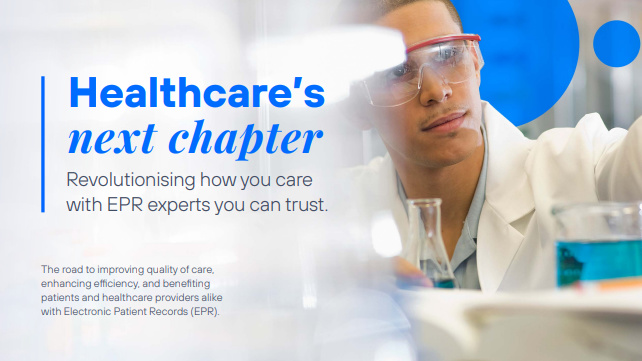 Healthcare’s next chapter
Healthcare’s next chapterwhitepaper Revolutionizing how you care with EPR experts you can trust
By ITPro Published
-
 Akamai snaps up API security startup Neosec
Akamai snaps up API security startup NeosecNews Neosec’s API detection and response capabilities will help customers protect themselves against API attacks, Akamai says
By Daniel Todd Published
-
 UK government to open huge data catalogue for app developers
UK government to open huge data catalogue for app developersNews Professional and independent developers will be given easy and vast access to transport data, opening up a wealth of opportunities
By Rory Bathgate Published
-
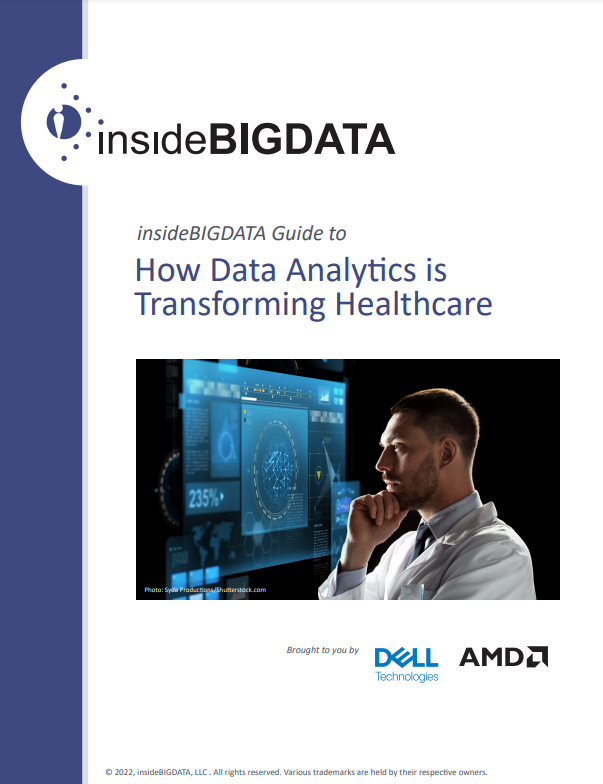 How data analytics is transforming Healthcare
How data analytics is transforming HealthcareWhitepaper How companies can adapt their strategy to integrate data analytics
By ITPro Published
-
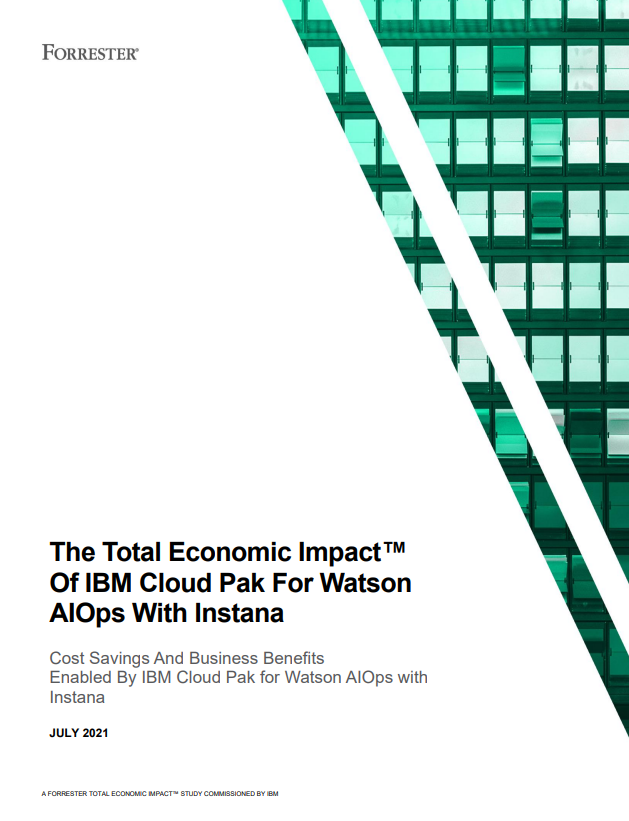 The Total Economic Impact™ of IBM Cloud Pak® for Watson AIOps with Instana
The Total Economic Impact™ of IBM Cloud Pak® for Watson AIOps with InstanaWhitepaper Cost savings and business benefits
By ITPro Published
-
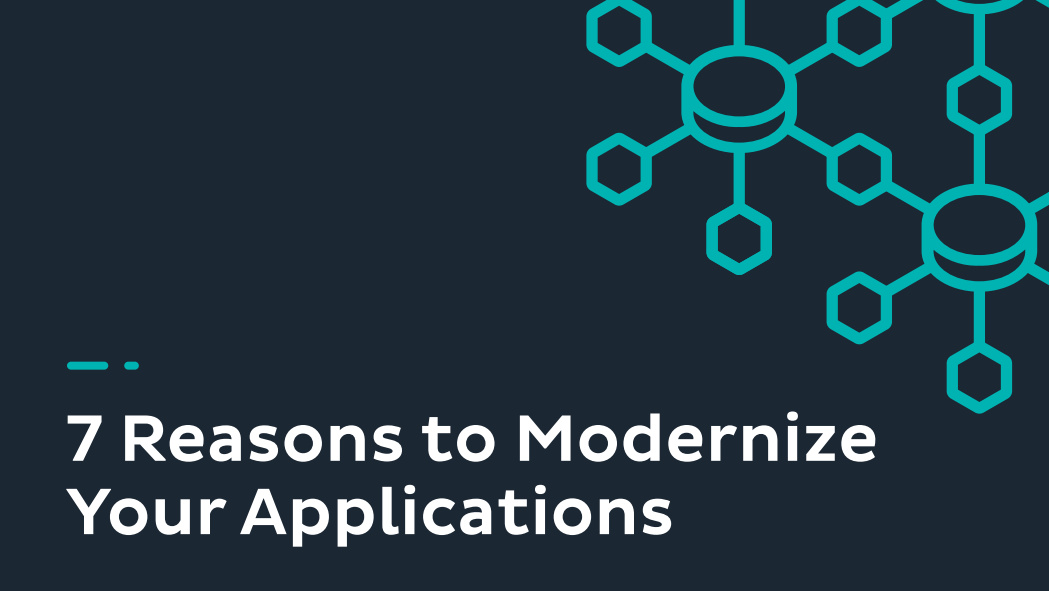 Seven reasons to modernize your applications
Seven reasons to modernize your applicationsWhitepaper Observability needs for application modernization
By ITPro Published
-
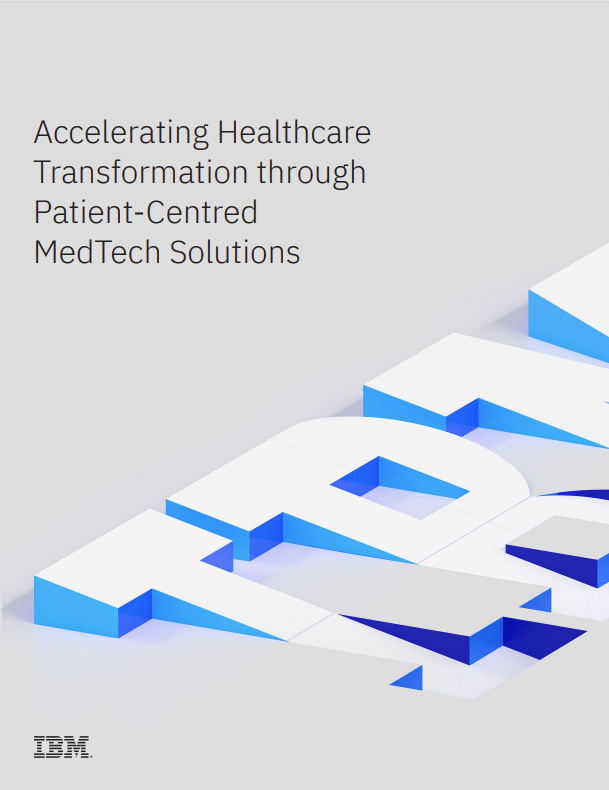 Accelerating healthcare transformation through patient-centred medtech solutions
Accelerating healthcare transformation through patient-centred medtech solutionsWhitepaper Seize the digital transformation opportunities to streamline patient care and optimise patient outcomes
By ITPro Published
-
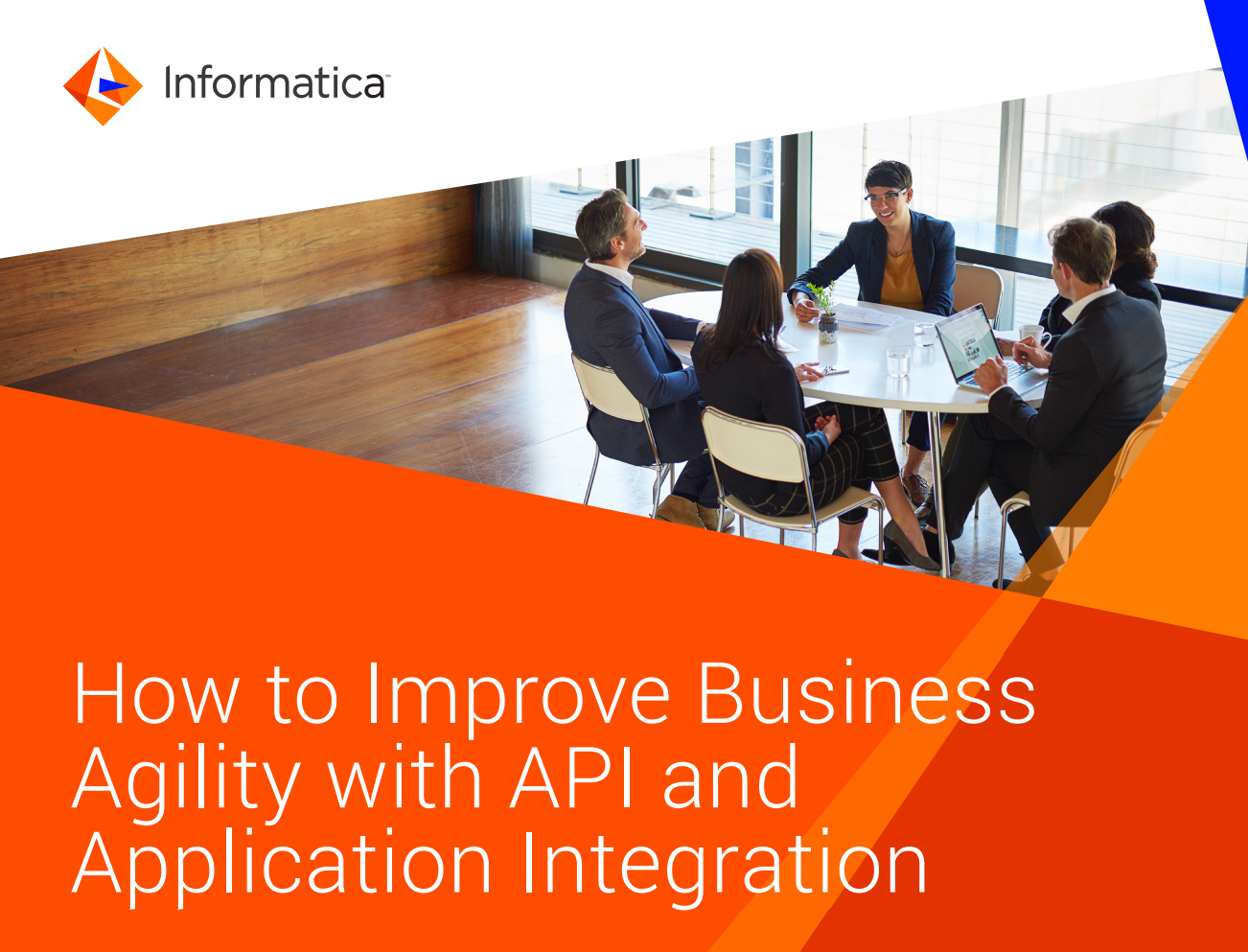 How to improve business agility with API and application integration
How to improve business agility with API and application integrationWhitepaper Multi-cloud and hybrid integration accelerates business operations
By ITPro Published
